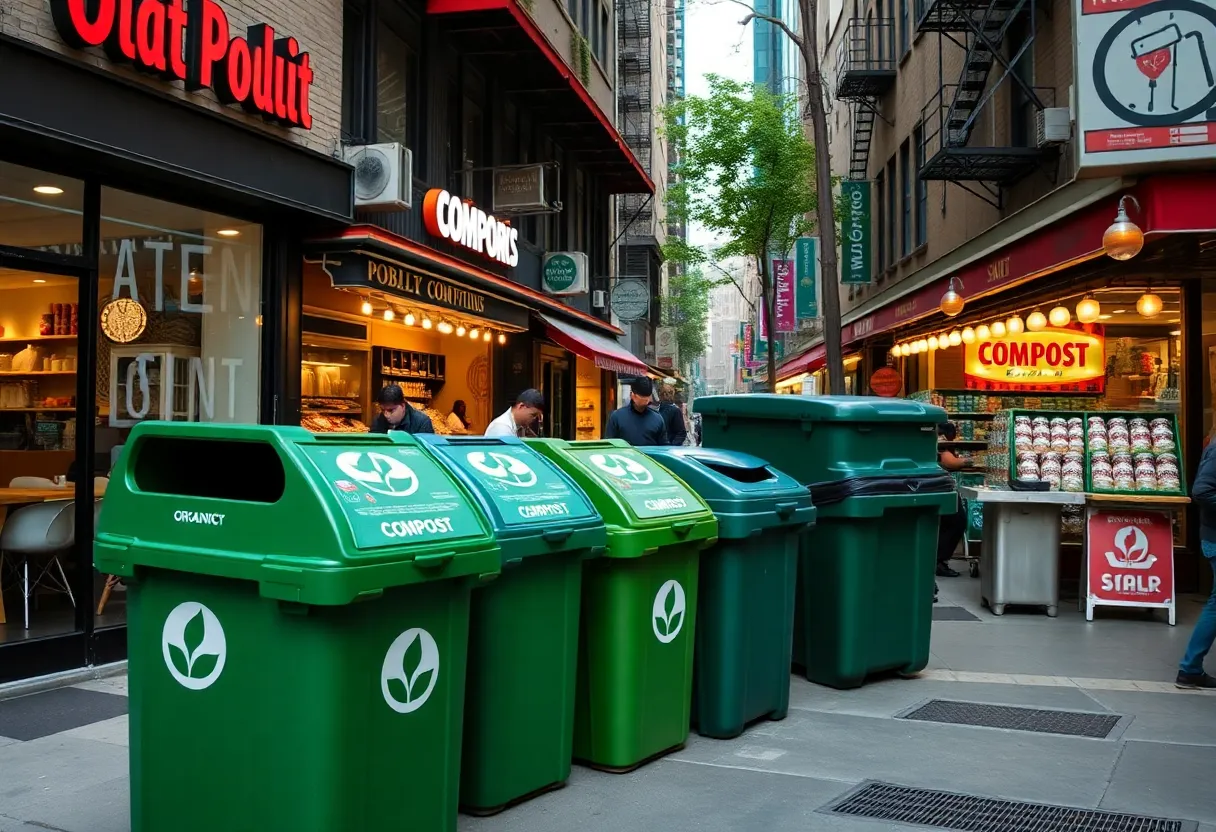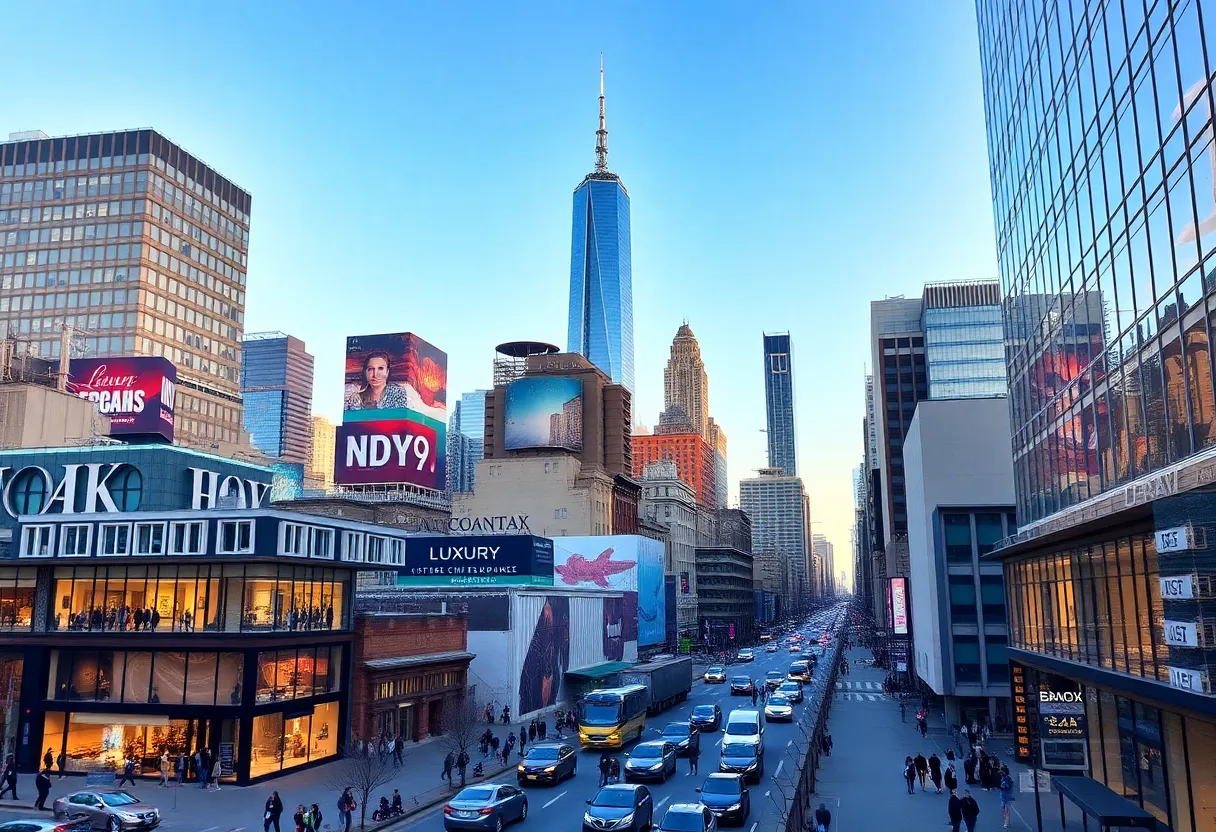News Summary
New York City introduces a new composting bill aimed at increasing sustainable practices among businesses. Sponsored by Councilman Shaun Abreu, the bill mandates composting for more restaurants and supermarkets. While supporters highlight environmental benefits, business owners express concerns over compliance costs and operational challenges, especially for smaller establishments. The bill aims to reduce organic waste and methane emissions, contributing to the city’s sustainability goals. As discussions continue, the balance between environmental responsibility and economic viability remains a contentious topic.
NYC’s New Composting Bill Sparks Debate Among Business Owners
The city of New York is once again taking strides towards sustainability with a new bill from the City Council aimed at getting more businesses to compost their food waste. Sponsored by Manhattan Councilman Shaun Abreu, the bill mandates that a larger number of restaurants, supermarkets, and food manufacturers will need to compost their food scraps, or could face some hefty fines. This bill is part of a wider push to combat climate change and reduce the 1.8 million tons of organic waste that NYC churns out every year.
Understanding the Changes
Currently, laws require larger businesses—like restaurants over 7,000 square feet and supermarkets over 10,000 square feet—to compost their organic waste. With the new legislation, however, the City Council plans to possibly lower the square footage threshold for businesses that will be obligated to comply. Although the details on the new thresholds have not been fully defined yet, the Department of Sanitation will determine which businesses will be impacted by these changes.
The aim of the bill is straightforward: to move the city towards a more sustainable future by reducing the harmful methane gas produced from decomposing food scraps in landfills. Composting offers a valuable alternative, transforming waste into nutrient-rich compost that can be used to enrich soil.
Concerns from Business Owners
Despite the noble goals of the bill, there’s some pushback from industry representatives, particularly from groups like the NYC Hospitality Alliance. Concerns have been raised about the potential financial impact on smaller restaurants that might struggle with the added burden of compliance. A survey conducted by the Alliance found that a staggering 86% of restaurants cited being short on space or logistics to comply with the new composting requirements, which raises questions about the practicality of the bill for smaller establishments.
The proposed fines for non-compliance make the stakes even higher. Starting with a warning after the first violation, the fines could escalate to $500 and even $1,000 for multiple violations within a single year. This understandably has many business owners worried about their bottom line, especially in a city already known for its high costs.
The Support and the Opposition
On the other side of the table, however, the bill does have its supporters. Five other City Council members are backing Abreu’s initiative, and the Acting Sanitation Commissioner has publicly endorsed the legislation, agreeing that expanding composting regulations is essential. The city’s existing mandate for residents to separate food waste from trash shows that authorities are serious about making composting a part of daily life for New Yorkers.
Interestingly, the home composting initiative has received a positive response from the community, with about 3.6 million pounds of organic waste collected in just two weeks. This success offers a glimpse into how effective composting can be when properly implemented.
The Path Ahead
One element causing confusion in the legislation is that while curbside composting became mandatory in October 2024, the city paused enforcement of fines this year to better educate the public. Despite the pause, cities cannot ignore the responsibility to continue composting. The Sanitation Department is working on expanding compost drop-off locations and working with communities to showcase the environmental benefits associated with composting.
However, there are voices within the City Council, known as the “Common Sense Caucus,” who believe that the composting program should be voluntary, not mandatory, noting the burden of regulatory compliance on businesses. Moreover, critics question whether the environmental benefits of such a program truly outweigh the challenges it imposes on both businesses and residents.
The discussion surrounding this new composting bill is far from settled, and as NYC moves forward with its sustainability goals, there will undoubtedly be more debates about the balance between environmental responsibility and economic viability for businesses across the city.
Deeper Dive: News & Info About This Topic
HERE Resources
Spring Break Adventures Await Families in NYC
New York City Council Challenges Mayor on ICE Decision
NYC Lawmakers Propose Repeal of Composting Fines
New York City’s Composting Program Faces Strict Enforcement
New York City Launches Mandatory Composting Program
Brooklyn Buzz: Keith Lee’s NYC Food Festival on May 17th
New York City Implements Mandatory Composting Program
Spring Celebrations: Events and Festivals in NYC for April 2025
Additional Resources
- QNS: NYC Suspends Composting Fines
- NBC New York: NYC Won’t Fine Some for Failing Composting Rules Yet
- Crain’s New York: NYC Council Eyes New Composting Rules for Businesses
- Gothamist: NYC Hits Pause on Most Compost Tickets
- Patch: NYC Decides to Pause New Composting Rules Until 2026
- Wikipedia: Composting
- Google Search: Composting in New York City
- Google Scholar: Composting Legislation New York City
- Encyclopedia Britannica: Compost
- Google News: NYC Composting Program








